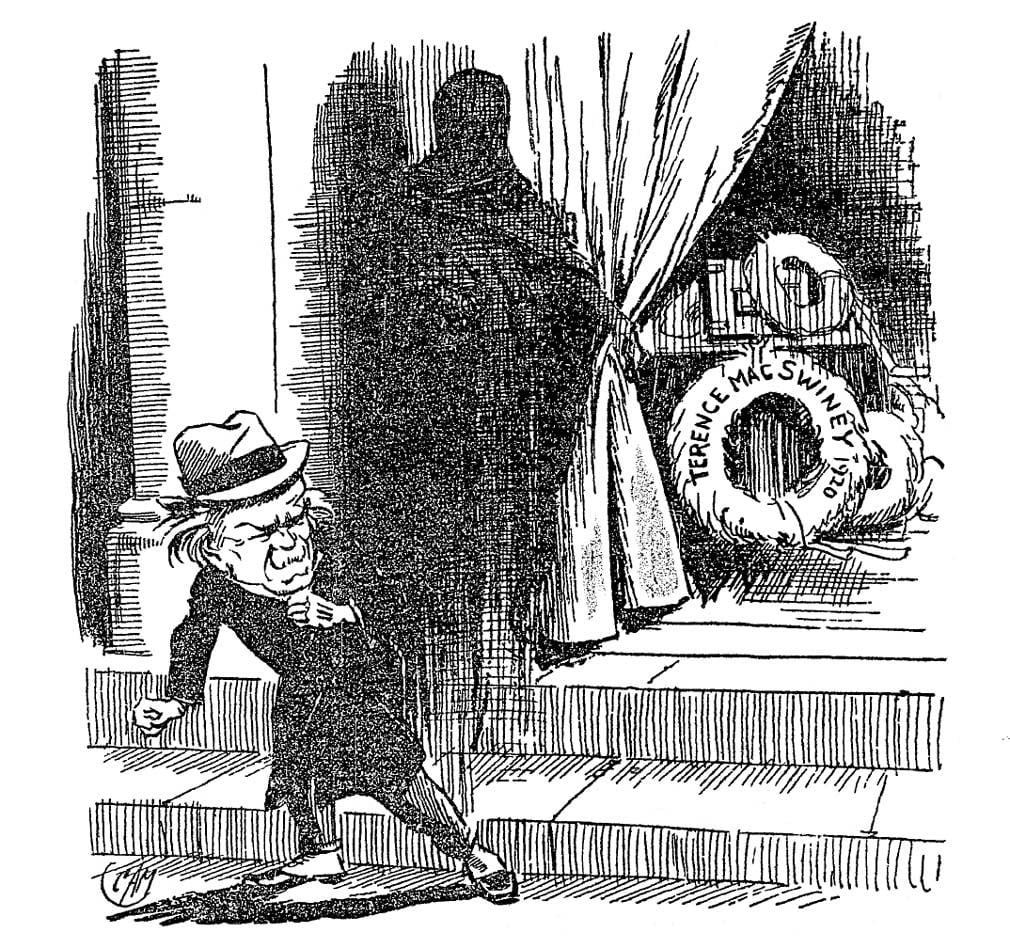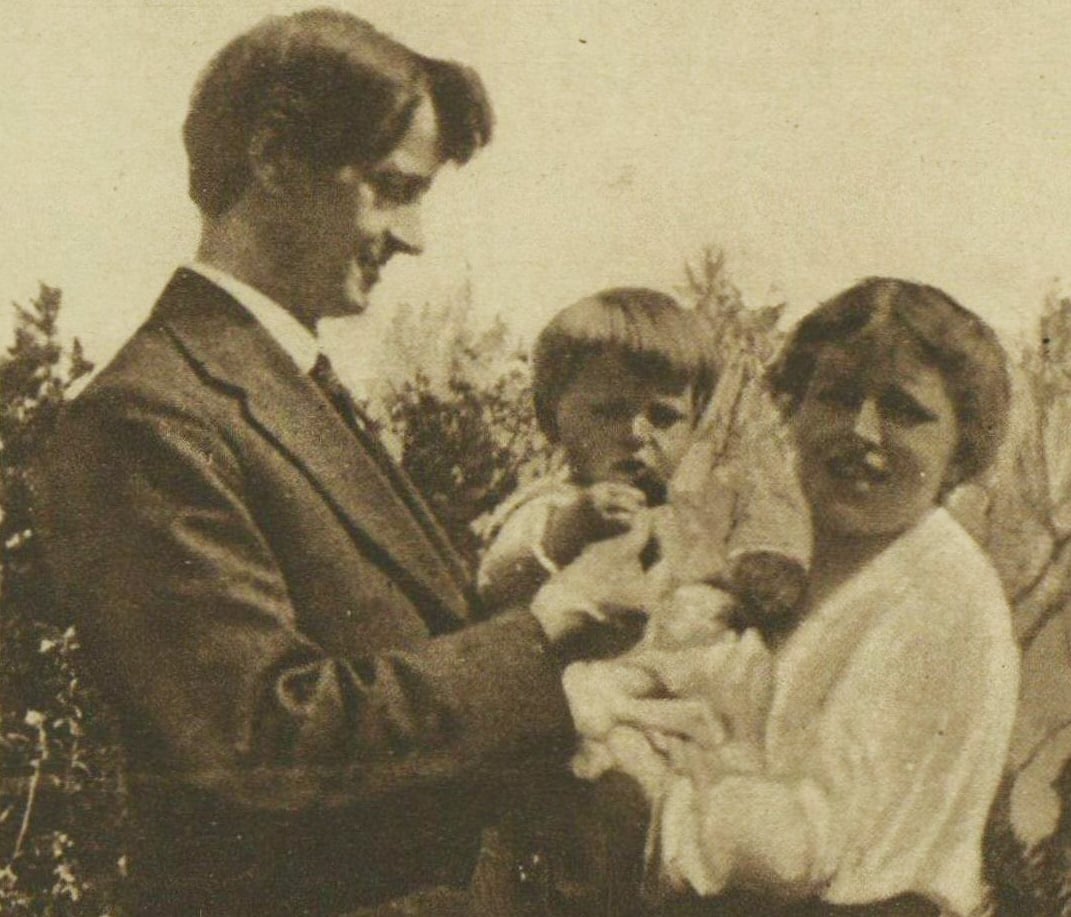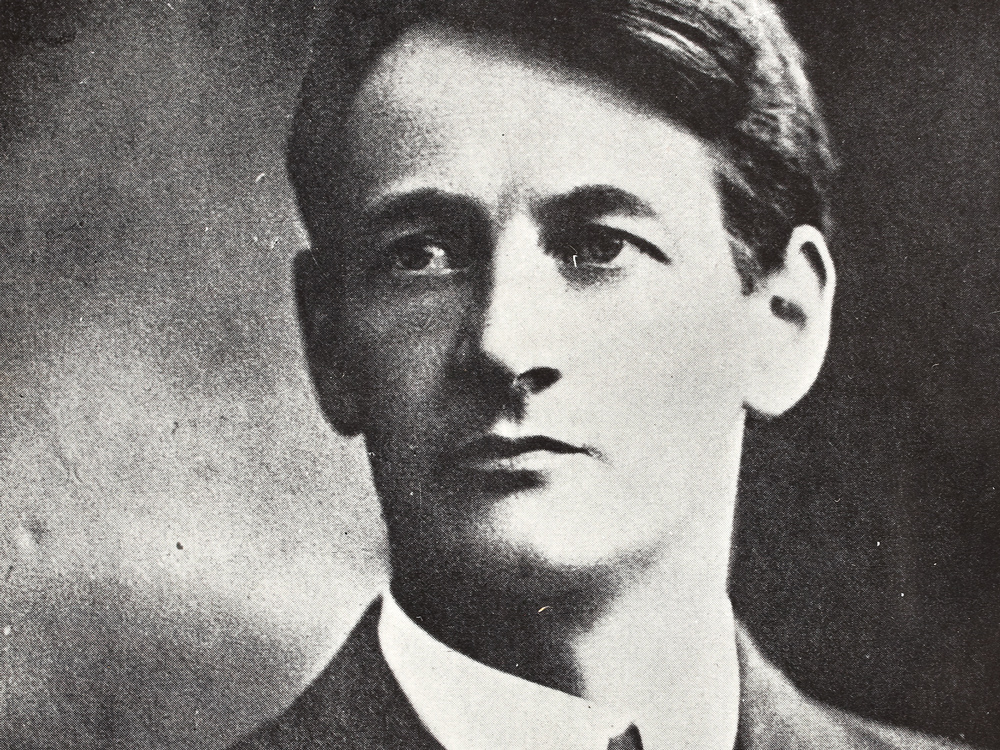Terence MacSwiney dies after 74 days on hunger strike
Brixton, 26 October 1920 - The Lord Mayor of Cork, Terence MacSwiney, has died in Brixton Prison after 74 days of hunger strike.
Mr MacSwiney drew his last breath at 5.40 yesterday morning with his brother Seán and his chaplain Fr Dominic O’Connor at his bedside.
Arthur Griffith of Sinn Féin said that the Lord Mayor has ‘proved… that victory in the struggle for Ireland’s freedom is not with those who can inflict the most, but those who can endure. The might of his country’s enemies failed to shake his faith or break his will.’

Cartoon, originally captioned ‘Triumph’ showing Lloyd George turning away from the fact that Terence MacSwiney had died (Image: Sunday Independent, 31 October 1920)
News of the death has made headlines across the world, but has been met with particular sorrow in the city of which he was Lord Mayor.
Today’s editorial in the Cork Examiner pays tribute to MacSwiney's heroic sacrifice, while noting:
‘Eulogy is not necessary for one who has been tested and found true to his country, and no one – not even Terence MacSwiney’s gaolers – can allege that a man who cherished a principle greater than he esteemed his life, was unworthy of the freedom he sought to win for Ireland. He has died, as many Irishmen before him have died, to win liberty for a small nation – he has made the supreme sacrifice to hasten the coming of Irish freedom. Such sacrifices as his cannot be in vain.’
In a message to the Deputy Lord Mayor of Cork, Dónal Ó Ceallacháin, Fr Dominic requested that his fellow citizens exhibit the same calm and dignified bearing as they had after the assassination of Tomás Mac Curtain earlier this year.
A native of Cork City, Terence MacSwiney attended school at the Christian Brothers, North Monastery. Although he left school at 15, he later gained entry into university where he obtained an honours bachelor of arts degree.
— RTÉ News (@rtenews) October 19, 2020
Mr MacSwiney’s commitment to the cultural and industrial life of his native country was reflected in his involvement with the Irish Literary Society, the Gaelic League and the Cork Industrial Development Association. He was a fluent Irish speaker, a poet and a dramatist. He became involved with the Volunteer movement and subsequently, in the aftermath of the Easter week rebellion in 1916, was arrested and interned, spending terms of imprisonment in Richmond Barracks, Wakefield Prison and Frongoch. Elected unopposed for the Mid-Cork constituency in the 1918 general election, he also became a Cork City councillor and was the unanimous choice to fill the vacancy of Lord Mayor following murder of his predecessor Tomás Mac Curtain in March this year.
The Home Office authorities have granted permission to seven Irish political prisoners in Brixton Prison to bear MacSwiney's remains from the mortuary to the prison gate.
The remains will then lie in state in St George’s Cathedral in Southwark, from where, following a Requiem Mass, a funeral procession will take place to Euston station. The Lord Mayor’s remains will then be returned to Cork for burial.
Terence MacSwiney is survived by his wife, Muriel, and their daughter Máire.

Terence and Muriel MacSwiney holding their daughter Máire (Image: Illustrated London News, 30 October 1920)
[Editor's note: This is an article from Century Ireland, a fortnightly online newspaper, written from the perspective of a journalist 100 years ago, based on news reports of the time.]





















